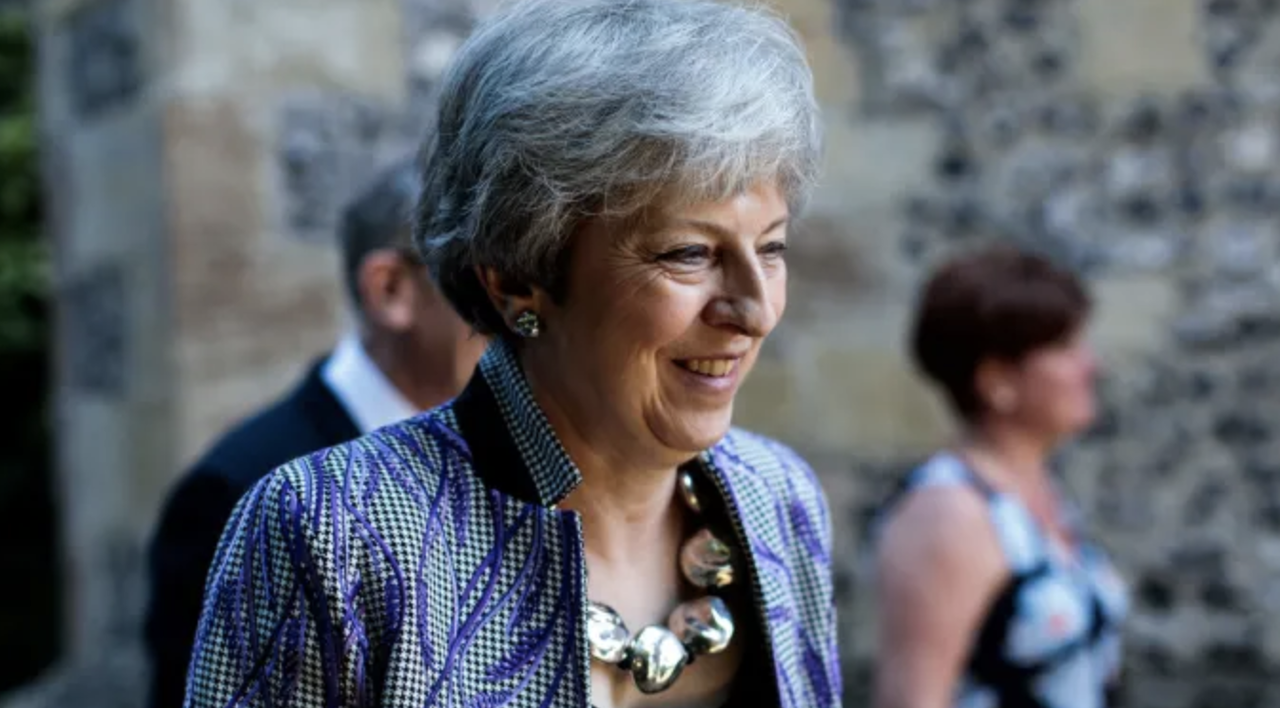Though the pound’s weakness against the dollar in the euro on Tuesday has been widely interpreted as a knock-on effect of the dollar’s strength, traders could be forgiven for assuming otherwise. Because after a brief Easter recess, Parliament is back in session, and Brexit-related news is back in the headlines.
Little has happened since Theresa May struck an 11th-hour agreement with the EU for a six-month extension of Article 50. Talks with Labour to find an alternative to May’s Brexit deal (talks that May clearly disdains) appear unlikely to succeed. Though the Tory and Labour delegations resumed talks on Tuesday, whispers suggest the talks could fall apart in the coming days.
Whatever happens with the talks is largely irrelevant anyway, since the EU has made it clear that the withdrawal agreement is the only deal that it would accept. That deal has already been rejected three times by Parliament, albeit by slightly more favorable margins in each successive vote, though as long as the Irish Backstop, the big sticking point in the deal, remains, it’s unlikely that May will be able to win over enough Brexiteers to push the deal through.
With few viable alternatives (apart from another can kick or, failing that, a second referendum), the Financial Times reported on Tuesday, surprising absolutely no one, that May is already preparing to bring the text of her withdrawal agreement back for a fourth vote.
Just like the third vote, May will need to embrace some procedural maneuvers to satisfy Speaker Bercow’s condition that the deal must be “substantially different” than prior votes if May wants to bring it back. This time, the withdrawal agreement will come packaged in a more far-reaching withdrawal agreement bill.
And a vote could come as soon as next week.
Downing Street sources said a fourth vote on May’s bill could be the last and best hope to avert Britain’s participation in the upcoming EU Parliamentary elections, something May had desperately sought to avoid.
If the bill is defeated, which is extremely likely, May would be prohibited from bringing it back for another vote until a new session of parliament begins. That wouldn’t happen until later this year, though we imagine May will find some kind of procedural loophole to keep bringing her deal back.
Even if it does manage to pass the Commons, it would still need to pass a few procedural hurdles before Brexit could be officially delivered.
The treaty the bill is intended to implement includes provisions such as the UK’s £39bn exit payment to the EU, protection of citizens’ rights, a transition period and the so-called backstop to avoid a hard border on the island of Ireland. If the legislation is rejected, as currently seems likely, the government could not reintroduce it again in this session of parliament.
“It would be quite a big thing,” admitted one ally of Mrs May. In those circumstances the bill could only be brought back if the current parliamentary session was ended.
Approval for the legislation would kick off a tortuous passage through parliament during which the bill could be amended. Attempts to add a customs union or a second referendum would be expected. Even if the bill did eventually become law, Downing Street said there would still have to be a separate “meaningful vote” on Mrs May’s deal under the terms of 2018 Brexit legislation. However, that would be expected to be a formality if MPs have already approved the bill to put the draft treaty into effect.
But whatever happens with the deal, it may soon become somebody else’s problem. That’s because, as the Telegraph reported, Graham Brady, the leader of the 1922 Committee of Tory backbenchers, is planning to confront May on Tuesday and demand that she either set a date for her departure, or Tories will change the leadership rules to allow her to be ousted (after surviving a no confidence vote late last year, May is immune from further challenges for a year under the current rules).
Other Tories, including Nigel Evans, another leading backbencher, have called on May to resign immediately. Though previous intra-party efforts to oust May have fizzled in the not-too-distant past, we seriously wonder how long the Tories can keep up with these threats to oust May before finding a way to actually get the job done. Brady will meet with the 1922 Committee later on Tuesday to vote on a possible rules change.
Either way, the Brexit impasse appears no closer to resolution. Which means a second referendum cannot yet be ruled out.
via ZeroHedge News http://bit.ly/2XAT2nd Tyler Durden
